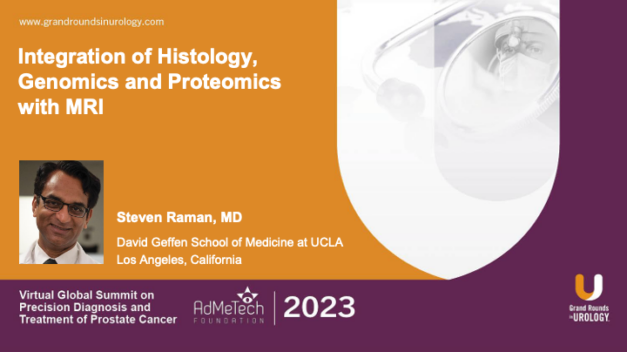Integration of Histology, Genomics and Proteomics with MRI
Steven S. Raman, MD, explores how histology, genomics, and proteomics with MRI revolutionize the diagnosis and treatment of prostate cancer. Histology provides critical insights into the pathological features of prostate cancer; genomics offers a deeper understanding of the genetic mutations and alterations that drive cancer progression; and proteomics sheds light on the protein expressions and interactions that occur within the tumor microenvironment. Raman asserts that each modality, while powerful on its own, gains significance when integrated with MRI prostate imaging.
He elaborates on the technological advancements and methodological innovations that facilitate this integration. Raman highlights how multi-parametric MRI (mpMRI) can be augmented with molecular data from histology, genomics, and proteomics to create a more comprehensive and nuanced diagnostic picture. Recent studies show significant improvements in the detection, characterization, and monitoring of prostate cancer, leading to more personalized and effective treatment strategies.
Read More
